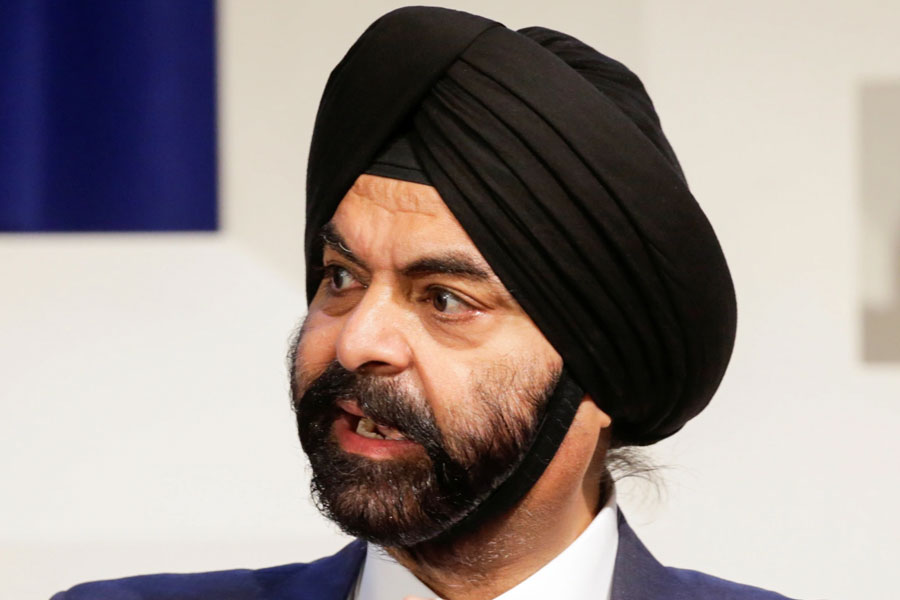
Dec 25 , 2021.
In the words of Herbert Hoover, the 31st president of the United States, it is older men that declare wars and the young that has to fight them and die. Indeed, far too many young lives were cut short fighting Ethiopia`s gruesome civil war for over a year now. The old folks who started it are likely to sit for talks on how to resolve the conflict away from the guns.
Hope against hopes for peace flickered in recent weeks, although the guns are still loud. The rhetorics for war appear to shift in favour of dialogue, where the parties in the conflict seem to converge in their use of language. Both sides now accept the genesis of the war is political, hence its resolution in politics and not violent conflict. Both have been on record expressing their desire for an "all-inclusive dialogue" to end the war. They need all the help they can get.
At least among those remotely rational in the Ethiopian elites of all persuasions, there is recognition that the one-year civil war is unwinnable, for neither side is as invincible as they have initially imagined. They do not have a decisive victory on their hands as they have promised their supporters. Instead, all they have to show for it is a long trail of bodies, orphaned children, brutalised women and destroyed civilian infrastructure.
The elites of the warring sides in Ethiopia ought to have known this, for there have been several iterations of this throughout modern history. In an ideal world or any other field but politics, they would all have resigned in shame. In this one, negotiations in good faith will have to do. There could be a reason to believe that it may happen after all.
Prime Minister Abiy Ahmed's (PhD) administration announced late last week that it had put the federal army in a lull from advancing to the Tigray Regional State. An internal document from the ruling Prosperity Party (PP), was also distributed to the rank and file for consultations, poetically titled, "A road from war to prosperity through peace." It urges its members to prepare to make "painful concessions" to demonstrate to the world its "resolve for peace." It shares a pearl of wisdom from history that "a majority of conflicts have their conclusion through dialogue, negotiations and settlement."
It would be unreasonable to disagree with such a constructive and timely deduction for a promising development.
Debretsion Gebremichael (PhD), TPLF`s chairman, has addressed letters under the Tigray Regional Government to Uhuru Kenyatta of Kenya and UN Secretary-General Antonio Guterres calling for mediation efforts in the war. He called for a cessation of hostilities and negotiations for a political settlement.
These are the latest developments that give reasons for cautious optimism. It should be refreshing to see the warring parties have taken steps themselves. It ought to be difficult for those at the helm not to recognise the fear and insecurity citizens have been subjected to, not to mention the death and destruction that has taken place.
Now, the kicker is peace on whose terms?
Although both sides have claimed for a while that they are not against the possibility of peace, they continue to put terms they know are unacceptable by their adversaries. Ethiopia`s has always been a captive peace, where the victor imposes its terms - its version of peace - on the vanquished. If there is one point that both sides have echoed clearly, the dialogue could not be allowed to come under the terms of humiliation.
It should be a point sufficiently recognised. Feelings of humiliation turn into discontent, and when that is left to fester for long enough, it could mean another war.
Both sides are showing an interest in dialogue may mean that they see a scenario where humiliation could be avoided through compromises, however painful the concessions. If this is the case, they desperately need all the support as the obstructions on their path are formidable. It is crucial to acknowledge that too many spoilers abound.
The main one could be a segment of the public. War creates a new normal, which has been the case for the past year. A heavy dose of propaganda has been injected into the public through every possible medium of modern communication. They have been bombarded with images and messages that paint the other side as irredeemably evil and worthy of total annihilation.
The “other” has gone to great lengths to seem to prove the propaganda right. Atrocities have been a constant throughout the civil war, leading the public to have difficulty imagining co-existence.
Selling peace and the value of compromise to the public will thus be daunting. It will demand imagination – which the political class infamously lacks – and the courage of the leaders’ convictions. Emphasising what can be built with peace going forward instead of accentuating past grievances and victimhood can help. The public can use some pacification. It should be encouraging to see Prosperitians at work changing the tide from war to dialogue and compromise.
The hawkish supporters are usually found foaming at the mouth when discussing the possibility of dialogue for a negotiated settlement with the other side. These are grotesquely prejudiced influencers and activists who would not get significant attention in a socially progressive and peaceful environment. In war, though, they have shined in the limelight. They have gained certain credibility. They get to say, “See, I told you about them,” at every opportunity of this uncivil war. And they would hate to let such power and influence slip through their fingers without resistance. They will do everything in their power to perpetuate this war.
One of their tactics would be to stress that compromise equates to defeat, and anyone that considers such an option is a traitor no better than "the enemy." They would also drone on about the atrocities and destruction their side has been subjected to while obfuscating any wrongdoing by that of their own. Most of all, they turn up the rhetoric to portray the “other” as a source of all of their side’s failings even before the war and call for its total annihilation.
The bulwark against this is for pacifists, whatever their distaste for one another, to build a coalition to advance the cause of peace. A movement that crosses the fault lines and can provide the popular support both sides require to push for dialogue, compromise and settlement a reality. This can be encouraged by promoting the constitution as an indispensable vehicle for the negotiations. Whether to uphold, amend, change or revise, the constitution and its order can serve as a parameter to take the dialogue forward.
The parties to be included in any dialogue will become as controversial and ferociously disputed matter ahead. However, accepting the constitutional order and renouncing violence as a political instrument should be all that is required from parties to engage in the desired all-inclusive dialogue.
PUBLISHED ON
Dec 25,2021 [ VOL
22 , NO
1130]

Fortune News | May 08,2021

Verbatim | Aug 05,2023

Radar | Dec 05,2018

Editorial | Jun 17,2020

Sunday with Eden | Oct 03,2020

Radar | Jan 29,2022

Sunday with Eden | Jan 16,2021

Commentaries | Aug 07,2021

Sunday with Eden | Jul 02,2022

Commentaries | Mar 23,2024

My Opinion | 131451 Views | Aug 14,2021

My Opinion | 127803 Views | Aug 21,2021

My Opinion | 125783 Views | Sep 10,2021

My Opinion | 123419 Views | Aug 07,2021

Dec 22 , 2024 . By TIZITA SHEWAFERAW
Charged with transforming colossal state-owned enterprises into modern and competitiv...

Aug 18 , 2024 . By AKSAH ITALO
Although predictable Yonas Zerihun's job in the ride-hailing service is not immune to...

Jul 28 , 2024 . By TIZITA SHEWAFERAW
Unhabitual, perhaps too many, Samuel Gebreyohannes, 38, used to occasionally enjoy a couple of beers at breakfast. However, he recently swit...

Jul 13 , 2024 . By AKSAH ITALO
Investors who rely on tractors, trucks, and field vehicles for commuting, transporting commodities, and f...

Jun 29 , 2025
Addis Abeba's first rains have coincided with a sweeping rise in private school tuition, prompting the city's education...

Jun 29 , 2025 . By BEZAWIT HULUAGER
Central Bank Governor Mamo Mihretu claimed a bold reconfiguration of monetary policy...

Jun 29 , 2025 . By BEZAWIT HULUAGER
The federal government is betting on a sweeping overhaul of the driver licensing regi...

Jun 29 , 2025 . By NAHOM AYELE
Gadaa Bank has listed 1.2 million shares on the Ethiopian Securities Exchange (ESX),...